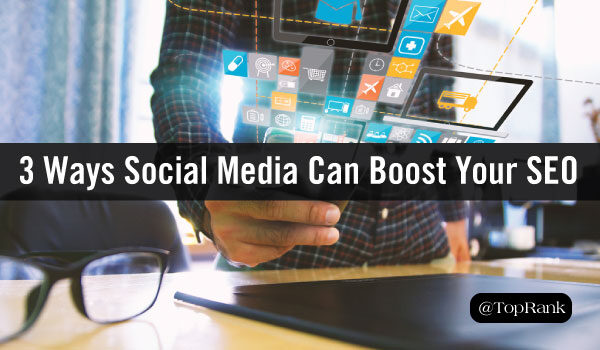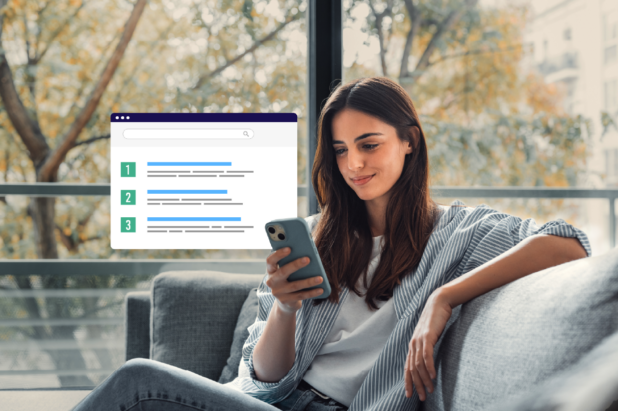Today, there’s little doubt among marketers that SEO and social media are two must-have components of any effective digital marketing strategy. After all, SEO is arguably the founding-father-tactic of digital marketing, and social media is the place on the web where our audiences gather, share and engage every day.
But over the years, there’s been some confusion on how these two tactics work together to achieve marketing results—and understandably so. Back in 2010, Google told Search Engine Land’s Danny Sullivan that links shared on Facebook and Twitter were used as a ranking signal. Then in 2014, Google’s Matt Cutts released a video stating Facebook and Twitter pages were “currently” treated like any other web page for search—i.e. social media was no longer a direct ranking factor.
However, regardless of whether social signals are used as a ranking factor—when done right—social media can most definitely enhance your SEO efforts. How? Below I share three reasons why, as well as some tips to make your social content more SEO friendly.
#1 – Your social media efforts can lead to quality backlinks.
While ranking science on backlinks has evolved over the years, the number of quality backlinks a website has is still an important ranking factor for search engines. As a result, link building or link earning is still a widely-used tactic among marketers—and your social media pages can be the perfect staging ground for enticing links.
The logic here is pretty simple. Social media marketing is all about sharing your best of the best content, and fostering engagement around that content. The more engaging your content, the more people will share, and the more opportunities people will have to find and link to your content.
#2 – Social media increases the visibility of your content—which is ultimately the goal of SEO.
Social media pages give your website and blog content another place to live and encourage discussion. And while your pages can be so much more than a promotional platform, one of the greatest social media benefits is the potential reach your content could get.
Of course, I asked my TopRank Marketing comrade Steve Slater, Digital Advertising & SEO Manager, to weigh in here, too. Here’s what he had to say.
“Whether or not social shares and metrics have an impact on ranking without them you are 100% at the mercy of Google organic,” he said. “Without social or paid or any promotional efforts, you are basically hitting publish and hoping for the best. You’re hoping that your content will just ‘go viral and take off.’ So, I think the question is not really, do social signals impact rankings? But rather, is anyone going to see this if I don’t promote it?”
#3 – Social media helps build brand awareness—which can carry over to users’ search queries.
Your social media pages add another digital space for your target audience to find you and engage with you, allowing you to build up your audience and your brand. Of course, when this happens people will more easily recognize you in search and be more inclined to click. In addition, that brand awareness you’ve built on social could mean more branded organic search traffic coming to your site or your other social pages (since those often rank in branded searches, too).
Quick Tips to Intertwine Social & SEO
While social media can add a nice little boost to your SEO efforts, the reverse—of course—is also true. Here are a couple quick tips for marrying social content and SEO.
- Optimize your posts and profiles. Social media platforms are search engines. So, make sure craft your posts with both users and SEO in mind. In addition, optimize your social profiles with the same logic.
- Leverage hashtags in the right way. Especially when it comes to Twitter and Instagram, hashtags are how people find the content they’re looking for; hashtags are their search queries. Research hashtag best practices for each platform to understand if and how to use them. In addition, make sure you understand what hashtags actually mean, so you can use them in the appropriate way for each platform. Use the native search box within social platforms, as well as tools such as Hashtagify.me or Hashtags.org.
- Draft optimized social messages when you’re crafting new content. Any content you’re creating for your website or blog should have an SEO component. As you’re creating this content, create several optimized social posts to go along with it. This will help you create relevant messages that can be found in native searches.
- Use mentioning and tagging to build more relevance—and signal influencers. Mentioning and tagging other pages and users in your content is one of the best ways to amplify your posts. Not only do those you tag and mention get notified when you do so, but they’ll be more compelled to engage on your post or share your post with their audience. And as mentioned above, the more shares and engagement, the better the reach and the more potential for driving quality traffic and backlinks.
Be the Best Answer for Your Audience
At TopRank Marketing, we practice what our CEO Lee Odden likes to call “The Best Answer Strategy.” For marketers, this means crafting an integrated marketing strategy that helps you be the best answer for your audience—whenever and wherever your audience is searching. And a component of that strategy is certainly leveraging social media marketing and SEO individually, and together.
For more best answer tips, continue to peruse the TopRank Marketing blog, and feel free to share your thoughts or questions in the comments of any post.



